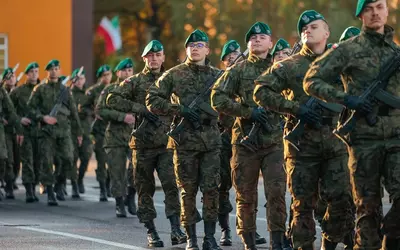Military Schengen to ease troops movement between countries
NATO Secretary General Jens Stoltenberg has stressed the need for military Schengen, the agreement that allows the unrestricted movement of troops across national borders. So far, three countries have signed the agreement: Poland, Germany and the Netherlands
NATO Secretary General Jens Stoltenberg has stressed the need for military Schengen, the agreement that allows the unrestricted movement of troops across national borders. So far, three countries have signed the agreement: Poland, Germany and the Netherlands.
It's easy to see why the three countries gave their armies Schengen-level mobility.
"Experiencing a full-scale war in Ukraine made us think about how important it is to move ally troops quickly and sign a treaty that allows Poland, Germany, and the Netherlands to move troops into the territory of other parties to the agreement," Polish Defense Minister Wladyslaw Kosiniak-Kamysz, said.
At present, allied forces are permitted to remain and pass through their allies' territory; otherwise, Estonia would not have units from other NATO nations. Until now, however, the deployment of troops on the territory of another country is a rather bureaucratic process. In challenging times, the capability of moving armies from one nation to another in the same manner that citizens do today – without border checks or other time-consuming procedures – could prove to be critical.
NATO Secretary General Jens Stoltenberg has also stressed the necessity of military Schengen. Other countries are likely to join the three-country initiative in the near future.
